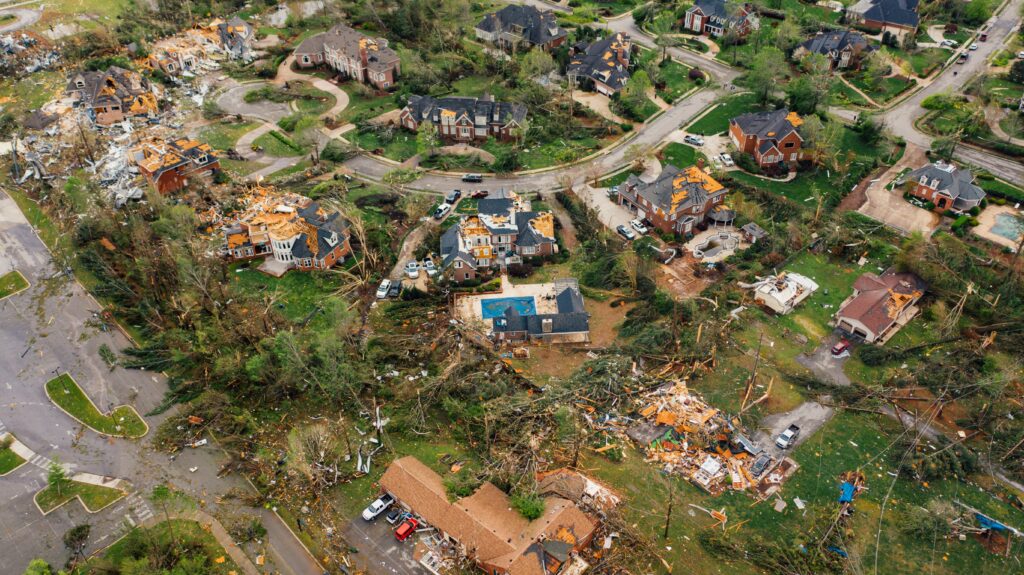As hurricane season approaches, residents of Alabama must take proactive steps to ensure their safety and protect their property. With the potential for powerful storms and their devastating impact, thorough preparation is paramount.

This article aims to guide individuals and communities in Alabama on how to effectively prepare for hurricane season, covering essential steps before, during, and after a hurricane event.
- Understanding the Threat
Alabama, located along the Gulf Coast, is prone to the effects of hurricanes due to its geographic proximity to the Gulf of Mexico. Understanding the nature of hurricanes is crucial in order to adequately prepare. Hurricanes are powerful tropical storms characterized by high winds, heavy rainfall, storm surges, and the potential for tornadoes. It is essential to stay informed about weather updates, as hurricanes can develop rapidly and change course unexpectedly.
- Create an Emergency Plan
Developing an emergency plan is vital to ensure the safety of yourself and your loved ones during a hurricane. Consider the following:
a. Identify evacuation routes: Research and familiarize yourself with evacuation routes designated by local authorities. Plan multiple routes in case of road closures or congestion.
b. Establish communication channels: Create a communication plan with family and friends, designating a central contact person outside the affected area. This will facilitate easy communication and help you stay connected during the storm.
c. Prepare emergency supplies: Build an emergency kit that includes essential items such as non-perishable food, water, medications, first aid supplies, flashlights, batteries, cash, important documents, and a battery-powered radio.
- Secure Your Property
Taking steps to secure your property can minimize potential damage caused by hurricanes. Follow these guidelines:
a. Reinforce doors and windows: Install storm shutters or board up windows with plywood to protect against strong winds. Reinforce doors with braces or bolts to prevent them from being blown open.
b. Clear surrounding areas: Remove loose items, outdoor furniture, and debris from your yard that could become projectiles during high winds. Trim trees and shrubs to minimize potential damage.
c. Secure your roof: Inspect your roof for loose or damaged shingles and repair them promptly. Consider reinforcing your roof with hurricane straps or clips to improve its resistance to strong winds.
d. Protect important documents: Safeguard important documents, such as identification papers, insurance policies, and medical records, by storing them in a waterproof container or digitally backing them up.
- Stay Informed
Continuous monitoring of weather updates and official communications is crucial during hurricane season. Stay informed through the following methods:
a. Weather alerts: Sign up for local weather alerts and warnings through smartphone apps, weather radios, or text message services. Stay tuned to trusted sources like the National Weather Service and local news outlets for the latest updates.
b. Emergency notifications: Register for emergency alerts issued by local authorities, such as evacuation orders or shelter-in-place instructions. These notifications will help you make informed decisions and stay safe.
c. Community resources: Stay connected with community organizations and local government agencies that provide real-time updates, emergency shelters, and other essential services during hurricane events.
- Evacuation and Sheltering
In some situations, evacuating to a safer location may be necessary. When evacuating, keep the following points in mind:
a. Follow evacuation orders: If local authorities issue evacuation orders, follow them promptly. Delaying evacuation can put your life and the lives of first responders at risk.
b. Plan ahead for shelters: Identify and locate emergency shelters in your area ahead of time. Familiarize yourself with their requirements and be prepared to bring essential items like bedding, food, water, and medications.
c. Pet safety: Make arrangements for your pets in case you need to evacuate. Identify pet-friendly shelters, pack their essentials, and ensure they have identification tags and any necessary medications.
- After the Hurricane
Once the hurricane has passed, it is important to remain cautious and take necessary steps to recover and restore normalcy:
a. Assess damage: Inspect your property for any damage or hazards. Be mindful of downed power lines, gas leaks, or structural issues. Contact relevant authorities for assistance if needed.
b. Contact your insurance provider: Report any damages to your insurance company as soon as possible. Take photos and document the damage for the claims process.
c. Practice safety measures: Exercise caution when using generators, cleaning up debris, or operating power tools. Follow safety guidelines to prevent accidents and injuries.
d. Emotional support: Natural disasters can be traumatic. Reach out to community resources, support hotlines, or counseling services if you or your loved ones need emotional support during the recovery process.
Conclusion
Preparing for hurricane season in Alabama requires comprehensive planning, proactive measures, and staying informed. By understanding the threat, creating an emergency plan, securing your property, and following evacuation protocols, you can mitigate the risks associated with hurricanes. Remember to stay connected with official updates, seek shelter when necessary, and prioritize safety during the recovery phase. Through preparedness, resilience, and community cooperation, Alabama residents can navigate hurricane season with greater peace of mind and protect both their lives and property.
 Email An Agent
Email An Agent 251-305-4990
251-305-4990 My Account
My Account


















 Click to Call
Click to Call

